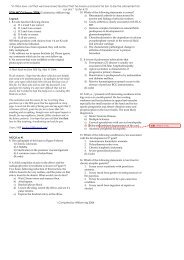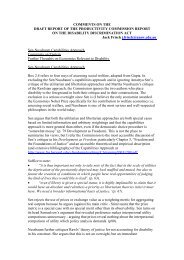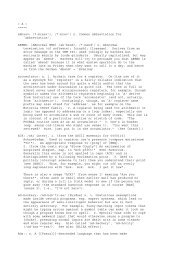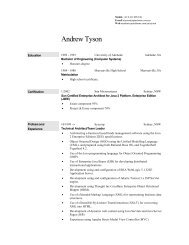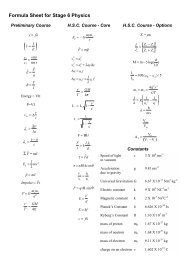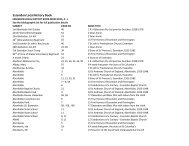Notes to Submission to the Productivity Commission Inquiry into the ...
Notes to Submission to the Productivity Commission Inquiry into the ...
Notes to Submission to the Productivity Commission Inquiry into the ...
Create successful ePaper yourself
Turn your PDF publications into a flip-book with our unique Google optimized e-Paper software.
“A person who has a disability may have a larger basket of primary goods and yethave less chance <strong>to</strong> lead a normal life (or <strong>to</strong> pursue her objectives) than an ablebodiedperson with a smaller basket of primary goods. Similarly, an older personor a person more prone <strong>to</strong> illness can be more disadvantaged in a generallyaccepted sense even with a larger bundle of primary goods” 9 .By this approach, a wheelchair user with a substantially higher income than ano<strong>the</strong>rperson can never<strong>the</strong>less be worse off in terms of material well-being if <strong>the</strong>y need <strong>to</strong> payfor a wheelchair and personal assistance, taxi fares instead of a bus and if <strong>the</strong>y pay morefor goods and services than <strong>the</strong>y o<strong>the</strong>r would. “The capabilities approach is concernedwith evaluating an individual’s advantage in terms of ‘actual ability <strong>to</strong> achieve variousvaluable functions as a part of living’. Both Sen and Nussbaum use this approach <strong>to</strong>enable comparisons of well-being and inequality, and <strong>to</strong> begin <strong>to</strong> define a ‘threshold ofcapabilities’ <strong>to</strong> determine a citizen’s entitlements from government. For Nussbaum andSen, well-being is only increased when everyone has available <strong>to</strong> <strong>the</strong>m a minimum basketconsistent with <strong>the</strong>ir individuals characteristics <strong>to</strong> enable <strong>the</strong>m <strong>to</strong> function as au<strong>to</strong>nomousindividuals.Economics ApproachThe traditional economic approach is predisposed <strong>to</strong> take endowments as given, and <strong>to</strong>allocate resources in a way which maximises utility subject <strong>to</strong> <strong>the</strong> given endowments, and<strong>to</strong> <strong>the</strong>n redistribute <strong>the</strong> resulting allocation if <strong>the</strong> first round distribution is consideredsocially undesirable.The “disability problem” is seen as one where individuals may have fewer products(lower incomes) as a result of any impairment which affects <strong>the</strong> actual or perceived speedand/or mobility with which tasks can be performed. Thus, economic analysis wouldexpect that a person who is “medically” impaired would earn lower income than o<strong>the</strong>rs if• <strong>the</strong>y take more time <strong>to</strong> achieve tasks than o<strong>the</strong>r workers and/or• require more complementary inputs (including space, equipment and/or <strong>the</strong> timeof o<strong>the</strong>r workers) <strong>to</strong> achieve <strong>the</strong> same task as o<strong>the</strong>r workers and/or• <strong>the</strong>y are discriminated against on <strong>the</strong> basis of <strong>the</strong>ir impairment and/or• <strong>the</strong>y are discriminated against because an employer believes that <strong>the</strong> person with aparticular impairment is slower or involves greater expense than o<strong>the</strong>r workers.The first two effects may be classified as productivity effects while <strong>the</strong> latter effects arediscrimination effects. While <strong>the</strong> economist “as citizen” may accept that <strong>the</strong> lowerincome resulting from both productivity and discrimination effects may be “unfair” andmay justify special consideration, <strong>the</strong> economist “as economist” has little in <strong>the</strong> way ofunambiguous criteria for evaluating ei<strong>the</strong>r <strong>the</strong> nature or <strong>the</strong> magnitude of <strong>the</strong> specialconsideration called, particularly when a redistribution program has undesirable“secondary” efficiency effects.9 Sen13



